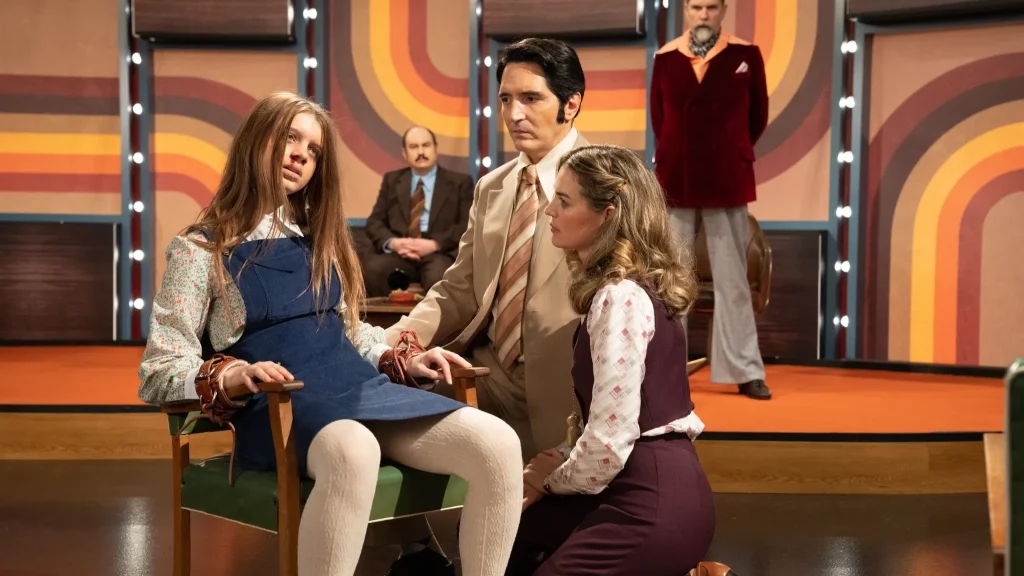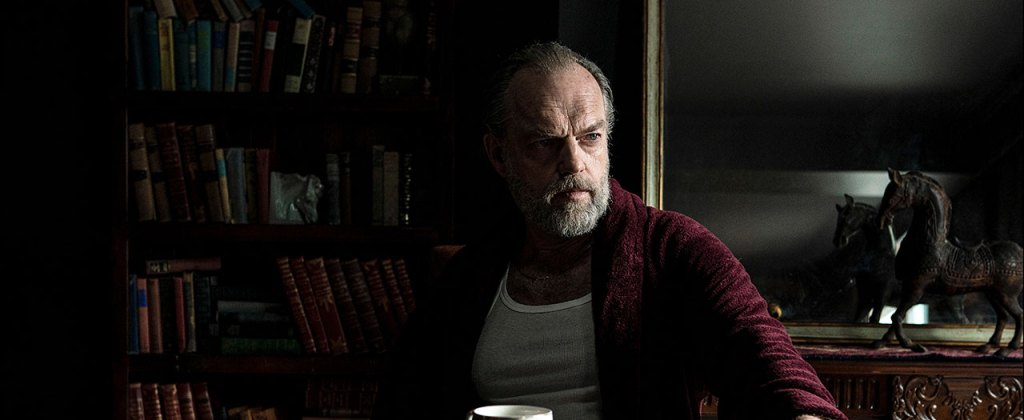Late Night with the Devil
by George Wolf
Who remembers The Amazing Randi?
He was that magician, author and “professional skeptic” who would come on the Johnny Carson show to debunk anyone claiming to have supernatural, paranormal or occult powers.
Memories of Randi aren’t required to feel the pull of Late Night with the Devil, but if you grew up around 1970s TV, you’re likely to have an even deeper appreciation for this high-concept homage from filmmakers Cameron and Colin Cairnes.
The Australian brothers who gave us the terrific low budget horror 100 Bloody Acres have essentially crafted their found footage genre entry, all centered around broadcast and BTS footage from the last episode of Night Owls with Jack Delroy, a nighttime talk show trying to compete with Carson.
The film’s prologue—featuring foreboding narration from Michael Ironside—tells us that by the late 70s, Delroy (a terrific David Dastmalchian) had been worried about the future of the show, which led to a fateful gamble.
Cue the footage!
Delroy’s “Randi” is Carmichael Haig (Ian Bliss, perfectly smug), who condescendingly debunks the show’s first guest, clairvoyant Christou (Fayssal Bazzi). Haig is then ready to do the same to Dr. June Ross-Mitchell’s (Laura Gordon) claim that her young patient Lilly (Ingrid Torelli) is possessed by a demon.
But Lilly’s got a surprise for sweeps week.
Cameron and Colin share the writing/directing duties, and they set an effective time stamp early on through solid production design and patient editing. The mood is one of appropriately cheesy humor amid some uneasy dread.
After all, we know what these wide-lapeled jokesters don’t: something nasty is about to go down.
The Cairnes boys take their time getting there, letting Dastmalchian reel us into Delroy’s easy charm and increasingly questionable backstory. Dastmalchian—a longtime supporting MVP blessed with a memorable face—is finally getting his chance to carry a film, and he does not disappoint.
Kudos also go out the effects department, rolling out a (mostly) practical finale that serves as a perfect capper to the film’s finely tuned aesthetic. Computer wizardry has no place in this world, and the Cairneses keep it refreshingly real.
Ultimately, what Late Night with the Devil has in mind is more like an R-rated Twilight Zone, with a twisty moral backed up by blood. Expect devilish fireworks and frisky throwback fun, even if you’re not scared out of your bellbottoms.


